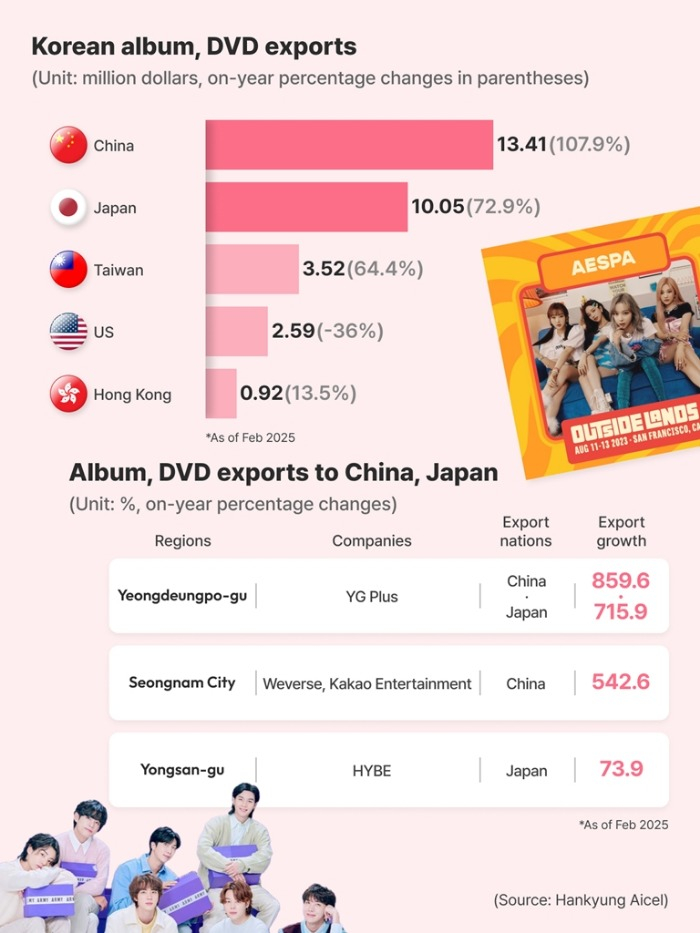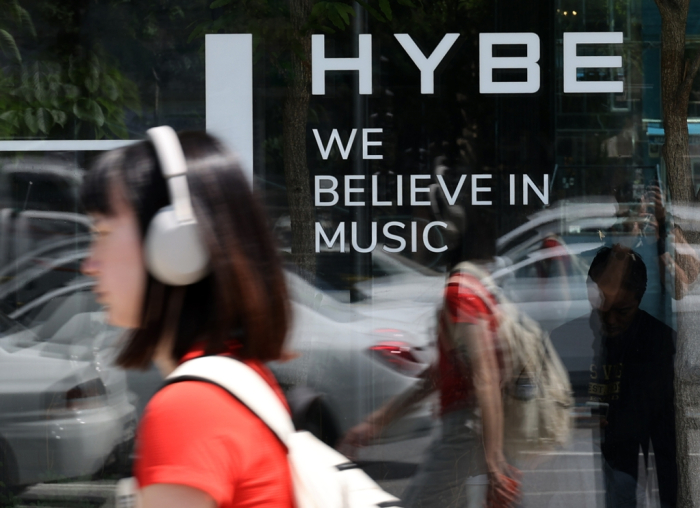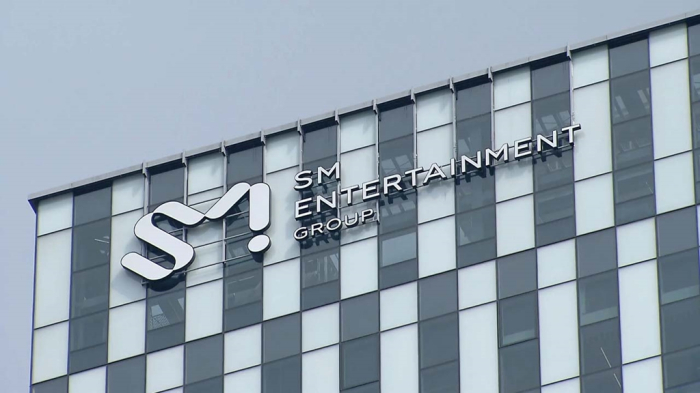K-pop
K-pop stocks surge as China set to loosen cultural ban after 9 years
With concerts and digital streaming immune to trade tariffs, the K-pop industry is less vulnerable to US-China tensions
By Apr 29, 2025 (Gmt+09:00)
3
Min read
Most Read
LG Chem to sell water filter business to Glenwood PE for $692 million


KT&G eyes overseas M&A after rejecting activist fund's offer


Mirae Asset to be named Korea Post’s core real estate fund operator


StockX in merger talks with Naver’s online reseller Kream


Meritz backs half of ex-manager’s $210 mn hedge fund



Shares in South Korea’s leading entertainment companies are rallying amid growing signs that China will likely lift its longstanding ban on Korean pop culture, rekindling hopes of a lucrative return to the world's second-largest entertainment market.
The so-called Hallyu ban – a restriction on Korean entertainment content imposed by Beijing in 2016 following a diplomatic rift – appears to be softening, with multiple K-pop acts receiving approval for performances and fan events in China.
The prospect of renewed market access, coupled with the anticipated return of top-tier K-pop sensations BTS and Blackpink as full-member groups, is providing a powerful tailwind for entertainment stocks, analysts said.
According to the Korea Exchange on Tuesday, the ACE K-pop Focus ETF, which tracks major entertainment names, has jumped 30.8% year to date.

The gains were led by SM Entertainment Co.’s 68.8% rise this year; a 49.9% share price hike for YG Entertainment Inc.; a 47.1% advance for YG Plus Inc.; and a 28.1% rise for HYBE Co., the agency behind BTS.
GRADUAL BUT UNMISTAKABLE THAW
Industry analysts attributed the rally to mounting indications that Beijing is preparing to fully reopen its market to Korean acts as early as May.
Eight-member boy group Epex is scheduled to hold a solo concert in Fuzhou, the capital of southeastern China's Fujian province, on May 31 – a landmark event as it would be the first standalone performance by a Korean-national idol group in China since 2016.

The thaw has been gradual but unmistakable.
Since February, Korean pop groups such as TWICE, IVE, and NCT have hosted fan signing events in mainland China.
Hip-hop trio Homies also held a performance in China earlier this month, signaling a broader shift in regulatory attitudes.
“Any foreign performance in China requires direct approval from authorities, so these events strongly suggest a policy pivot,” said a Korean asset manager. “Market attention now turns to whether stadium-scale concerts – those drawing over 10,000 attendees – will also receive the green light.”

ECONOMIC POTENTIAL FROM HIGH-PROFILE COMEBACKS
The potential economic upside is substantial.
Analysts at Yuanta Securities Korea Co. estimated that a full reopening of the Chinese market could boost revenue for Korean entertainment companies by 15% to 30%, driven by concert ticket and merchandise sales.
According to data provider FnGuide Inc., the combined 2025 revenue estimate for Korea’s top four entertainment companies – SM, HYBE, YG and JYP Entertainment Corp. – is 4.8 trillion won ($3.3 billion).

Even a 10% sales rise as a result of China’s Hallyu ban lifting would propel their total sales past 5 trillion won, analysts said.
According to Korea Creative Content Agency estimates, China’s live music market, valued at $2.22 billion last year, is projected to grow to $2.73 billion by 2027.
Adding to the bullish sentiment is a packed calendar of high-profile comebacks.
BTS is gearing up for a full-group return, with members J-Hope and Jin, who have completed their military service, set to embark on global tours.

Blackpink, meanwhile, will launch a new world tour in July, spanning 18 performances across 10 major cities.
IMMUNE TO TRADE TARIFFS
K-pop stocks have also proven resilient amid global macroeconomic headwinds.
With entertainment sales largely derived from live events, digital streaming and merchandise – all immune to trade tariffs – the sector stands apart from export-heavy industries vulnerable to US-China tensions.

The entertainment sector may even benefit as China scales back imports of Hollywood content, creating opportunities for Korean entertainment firms to fill the cultural vacuum.
“The entertainment sector enjoys a kind of tariff immunity,” said Lee Sun-hwa Lee, an analyst at KB Securities. “Even if global economic pressure raises prices, K-pop’s cultural value is hard to replace. With the upcoming comeback cycle and China’s reopening, the sector is well-positioned for continued outperformance through 2025.”
Write to Jin-Gyu Maeng at maeng@hankyung.com
In-Soo Nam edited this article.
More to Read
-
 Business & PoliticsChina likely to lift ban on South Korea’s K-wave as early as May
Business & PoliticsChina likely to lift ban on South Korea’s K-wave as early as MayFeb 19, 2025 (Gmt+09:00)
3 Min read -
 Food & BeverageKorean snacks mesmerize global consumers amid K-pop popularity
Food & BeverageKorean snacks mesmerize global consumers amid K-pop popularityMar 10, 2025 (Gmt+09:00)
4 Min read -
 K-popK-pop exports boom as end of Chinese K-wave ban looms large
K-popK-pop exports boom as end of Chinese K-wave ban looms largeMar 31, 2025 (Gmt+09:00)
4 Min read -
 Beauty & CosmeticsPackaging rides K-beauty wave: Shares of cosmetics container makers soar
Beauty & CosmeticsPackaging rides K-beauty wave: Shares of cosmetics container makers soarApr 21, 2025 (Gmt+09:00)
3 Min read -
 EconomyBTS, Blackpink economy: Korea’s IP rights trade surplus hits record high
EconomyBTS, Blackpink economy: Korea’s IP rights trade surplus hits record highMar 21, 2024 (Gmt+09:00)
2 Min read
Comment 0
LOG IN


